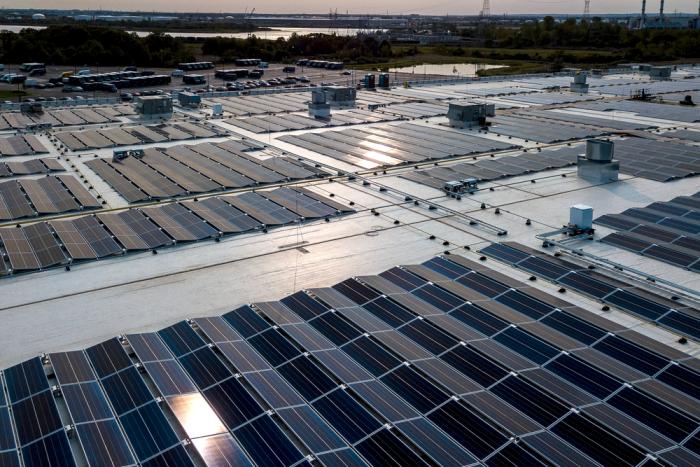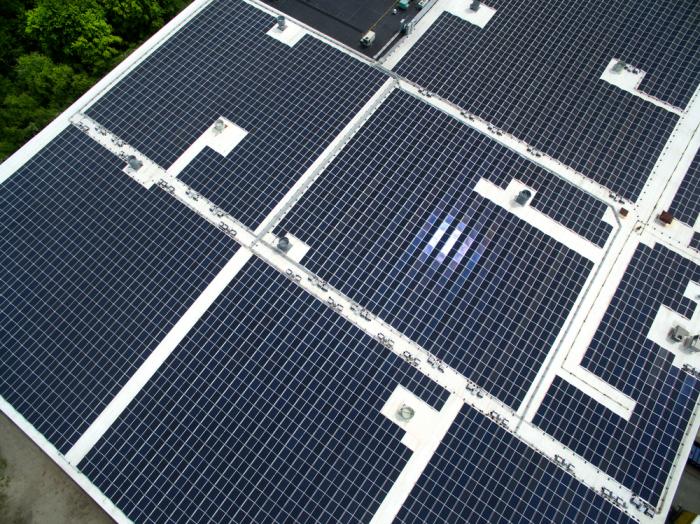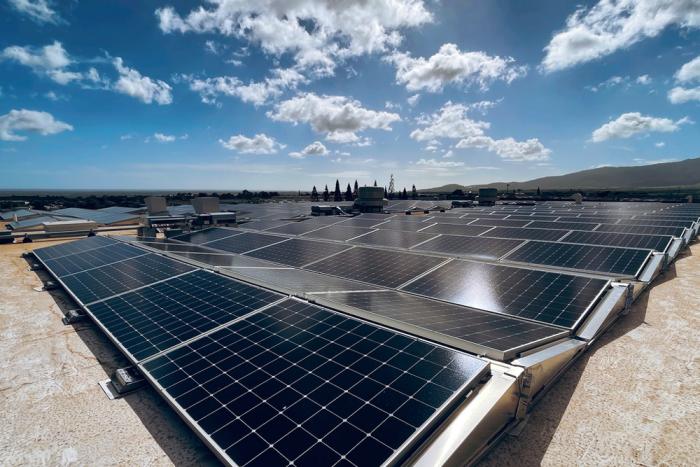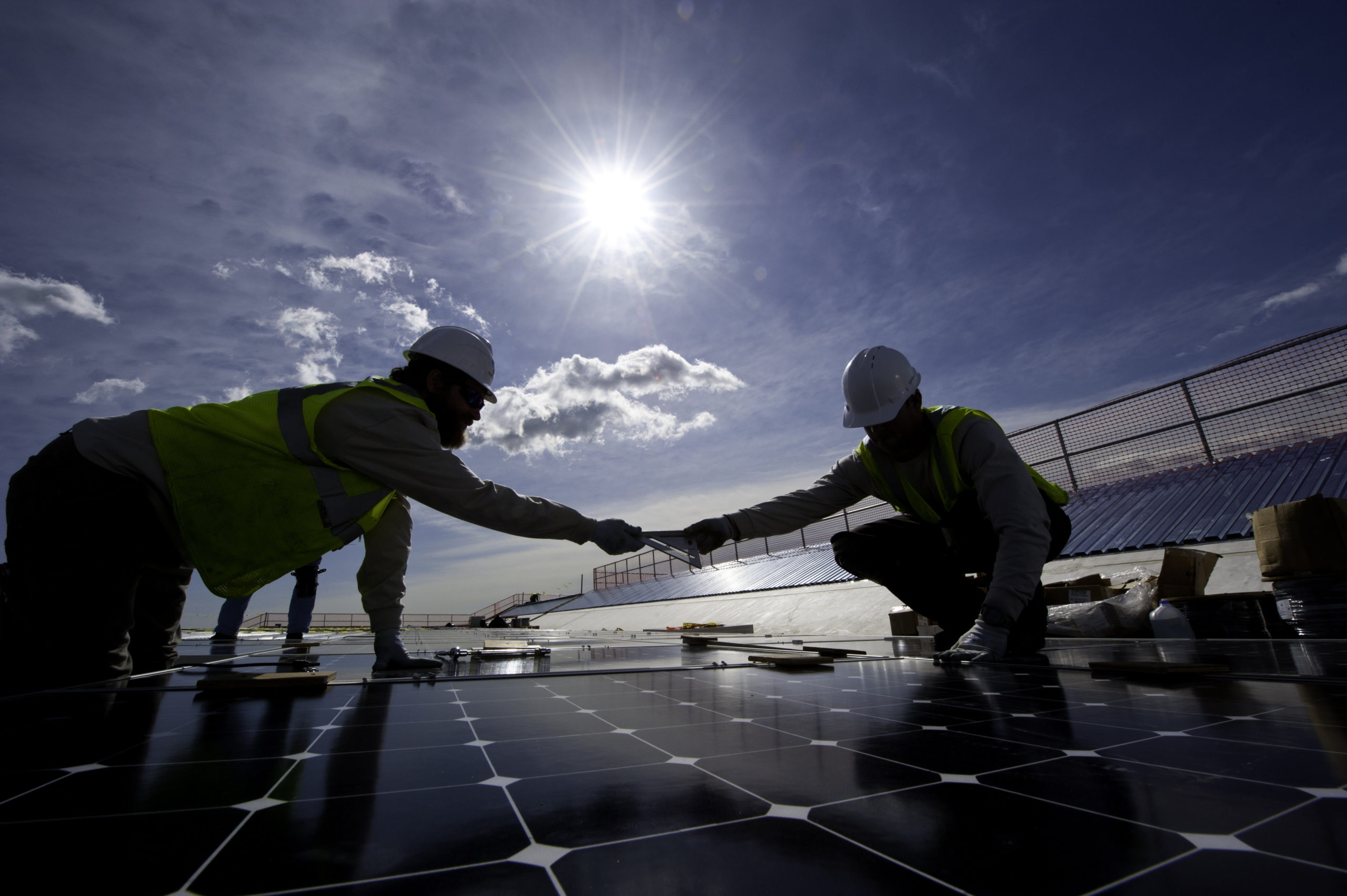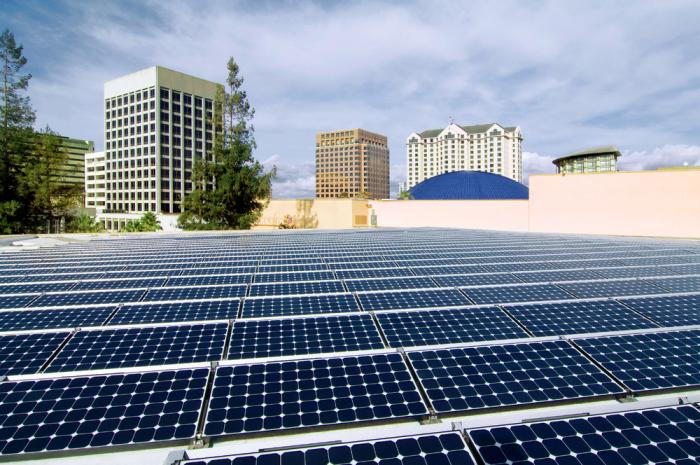Listing the many benefits of commercial solar energy for business is easy but quantifying their value can be more challenging. The impact on property value is a prime example. While it’s likely true that a building equipped with high-quality solar panels for commercial property is more valuable than a facility that relies on fossil fuel-generated energy, determining exactly how much more valuable can be complicated. If increased property value is an important factor to your organization in justifying the cost of commercial solar panels, this article may help.
To start, let’s take a quick look at non-commercial, residential solar installations. A study performed by Zillow indicated that homes with solar panels sell for 4.1% more than comparable homes without them. While some reports indicate a similar correlation for business property valuations, not enough studies have been conducted to verify comparable findings for commercial sites. Still, the general takeaway is apparent: Adding solar power has the potential to increase a property’s selling price.
The specific impact of solar on commercial property value largely depends on the answer to each of the following questions:
Does the organization installing solar power own the building/property for the project? As one might expect, the greatest potential value-add occurs when the organization adopting commercial solar power owns the site and the solar equipment being installed. Buying the commercial solar equipment outright gives owners access to any possible tax incentives, reduced energy expenses and potential for claiming renewable energy credits (as well as the ability to promote the green attributes of their solar system). Increased commercial property value is also part of that benefit list.
How does a leased property deliver the benefits of commercial solar? Many organizations rent their commercial facilities, but that doesn’t mean they can’t benefit as well. Most of the costs of the property (e.g., insurance, property tax, utilities) are paid for by the lessee (or flow through to them in the form of higher rent). Installing commercial solar could reduce the energy costs the lessee would have to pay—and allow them to benefit from positive public perception by having solar on their site.
What is the added value for property owners who provide solar energy for tenants? Here are some benefits that renters can bring up when trying to convince a landlord to install commercial solar:
- Tenants enjoying lower electricity bills may be more satisfied and willing to stay longer, reducing the time and expense of finding new renters.
- Properly-structured PPAs or solar lease deals can potentially be transferred to new tenants if the original lessee leaves, making the property more attractive to potential commercial renters.
- Properties with a solar installation could also benefit from the growing number of organizations taking corporate social responsibility more seriously.
Are there any “softer” benefits of going solar that ultimately have an indirect impact on property value? Another less obvious but noteworthy consideration is the fact that few things say “environmental awareness,” “social responsibility” and “progressive thinking” like visible commercial solar panels. In addition to improving public image, a commercial solar system offers all the benefits and cost savings of going green, while also updating a building’s physical appearance. In general, better-looking properties yield increased property values.
In summary, when evaluating the advantages and disadvantages of commercial solar, property value is something that should be factored into the equation.
This post originally appeared on the SunPower Resource Blog

